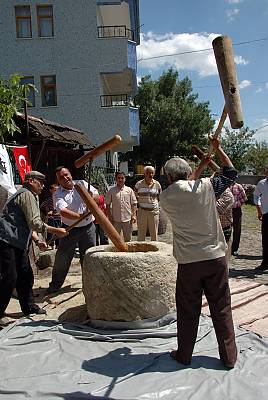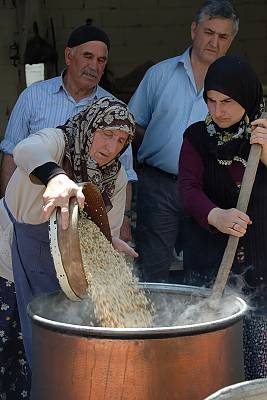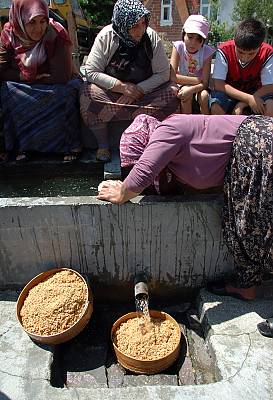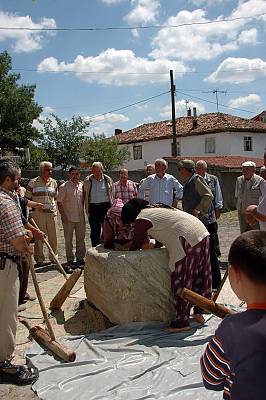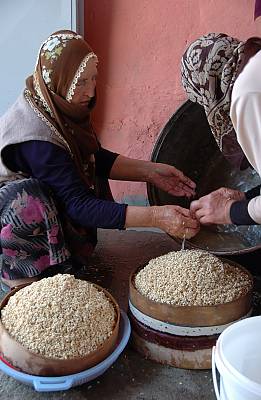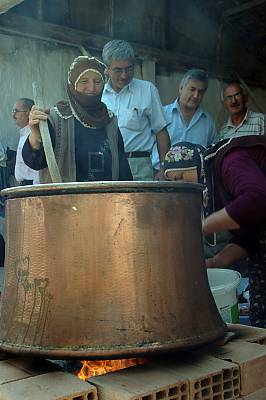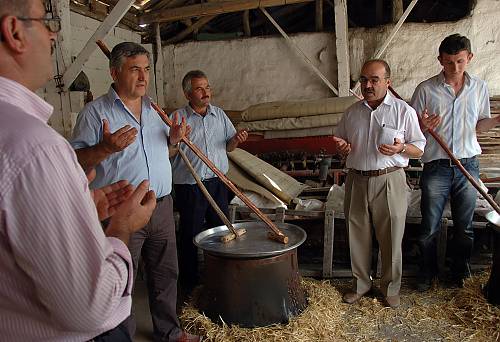Ceremonial Keşkek tradition
Inscribed in 2011 (6.COM) on the Representative List of the Intangible Cultural Heritage of Humanity

Keşkek is a traditional Turkish ceremonial dish prepared for wedding ceremonies, circumcisions and religious holidays. Women and men work together to cook wheat and meat called ‘Keşkek’ in huge cauldrons, then serve it to the guests. The wheat is washed with prayers the preceding day, and then carried to a large stone mortar, to the accompaniment of music from the davul drum and zurna double-reed pipe. At the mortar it is hulled by two to four persons using gavels in a fixed rhythm. Cooking is usually carried out outdoors: hulled wheat, chunks of meat on the bone, onions, spices, water and oil are added to the cauldron and cooked all night. Towards noon, the strongest of the village youth are called to beat the Keşkek with wooden mallets, while the crowd cheers and zurna players perform musical pieces, announcing the thickening of the stew with a specific melody. Numerous expressions associated with the dish – used during the selection of wheat, the blessings, praying and carrying the wheat, as well as preparing and cooking it – have become common expressions in daily life. In addition, the tradition encompasses entertainment, plays and musical performances. Neighbouring towns and villages are invited to feast collectively in the ceremony premises. The cooking tradition is safeguarded and transmitted by master cooks to apprentices.
